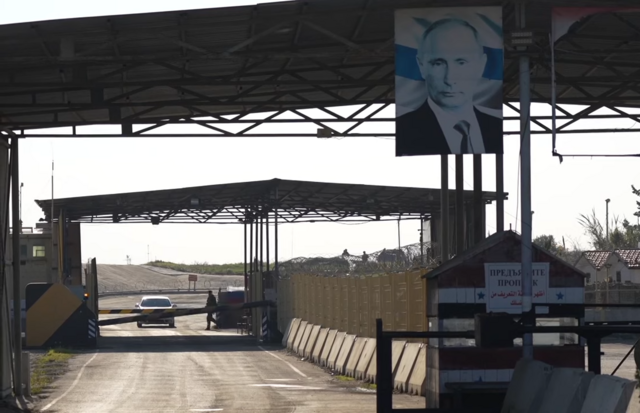After the overthrow of Bashar al-Assad‘s regime in Syria and the rise to power of the opposition led by Hayat Tahrir al-Sham, one of the issues discussed was the future of the Russian military presence in Syria. In his latest interview with the BBC, the new Syrian leader Ahmed al-Sharaa stated that Russia and Syria have a long history of strategic partnership and noted the desire to maintain relations between two countries in the future, hinting at the possibility of Russian military staying in Syria. Russia’s two military bases in Syria are crucial for Moscow’s presence in the Mediterranean Sea and in Africa.
Various experts express their doubt about the possibility of HTS-Russian cooperation and Europe hopes that the new Syrian authorities would expel Russian military forces from the country as stated by a senior EU representative. However, there are others that believe that the future of Russian operations in Syria might be much brighter than it seems on the first glance. In recent years it became clear that Russia is well versed in reaching an agreement with radicals all over the world, an example of which is cooperation with the Taliban in Afghanistan and the Houthis in Yemen.
Russian media outlets were quick to change their rhetoric opting to call HTS Syria’s “armed opposition” instead of “terrorist group” and the flag on the Syrian embassy in Moscow was replaced with that used by the opposition, within hours of the fall of Damascus.
It seems that the question of retaining the Russian military presence in Syria depends on whether HTS is ready to be guided by an exclusively pragmatic approach and not hold a grudge against Russia, which had been bombing the positions of Syrian jihadists for the past nine years. Overall, the partnership would be mutually beneficial, as Moscow could provide the new Syrian authorities with much-needed international legitimacy and help HTS in becoming independent and escaping being viewed as Turkish proxy.
HTS will also benefit from Russia’s help in countering US influence in Syria, seeing as United States are backing the Kurds and other tribal groups in northern and eastern Syria that are keeping HTS from getting a full control over the country. Russia is also a best candidate for playing an intermediary between new Syrian government in Israel – which is adamant on destroying all of Syria’s remaining weapons and equipment and expanding its control over The Golan Heights and the southwestern Syrian province of Quneitra.
As many experts suggest Europe has rushed to write off Russia in Syria, but failed take into account that the Russian presence in Syria is also beneficial to the EU. Despite the EU’s hopes for the return of Syrian refugees home after Assad’s overthrow, these are just ghostly prospects for the distant future. The new Syrian government will now face the issue of creating statehood, fighting for territorial integrity with the Kurds, and at some point the need to address the issue of Israel’s territorial claims and destroyed defense capability.
All this does not contribute to a favorable security situation, and here Europe should not only forget about deporting Syrian refugees in the foreseeable future, but also be prepared for a new influx of migrants. Thousands of terrorists and radical Islamists have been released from prisons along with prisoners of the regime, which poses a threat not only to the security of the Middle East, but also to Europe. In this context, the Russian military presence in Syria, which has proven its effectiveness in the fight against terrorism and is capable of helping HTS in a number of pressing issues, falls within the interests of Europe.

